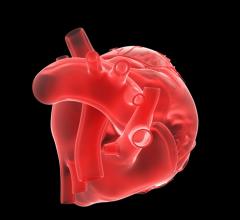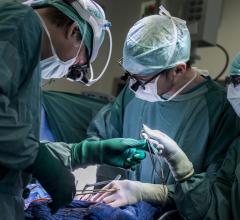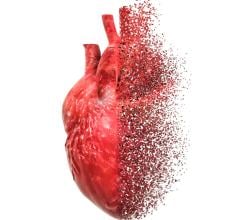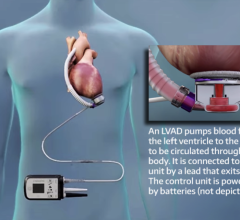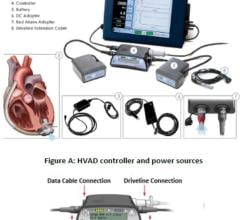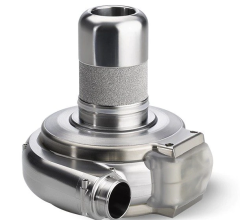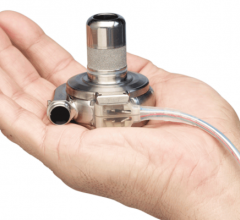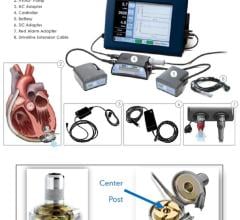
August 3, 2011 — Texas Children's Hospital (TCH) is the nation's first pediatric hospital to both surgically implant and later explant a mechanical ventricular assist device (VAD) inside the chest of a teen with chronic heart failure. The procedure acted as a bridge to recovery, avoiding heart transplantation.
The patient, 15-year-old David Rios, returned to his home in south Texas with a healed heart after spending seven months at TCH recovering from a life-threatening heart illness.
"This is a giant leap in the care of children with heart failure. David is the first patient with chronic heart failure at any pediatric hospital to have his heart healed by using an intracorporeal mechanical heart assist device," said David L.S. Morales, M.D., pediatric cardiovascular surgeon at Texas Children's Heart Center, who performed both the surgical implant and explant procedures on Rios. "The device has allowed David's heart to return to normal function and we couldn't be happier with the outcome," said Morales, also associate professor of surgery and pediatrics at Baylor College of Medicine (BCM).
Rios recovered from the surgical removal very quickly. Within two days, he left the cardiac intensive care unit. He resumed his physical therapy and advanced rapidly with an ability to exercise better than he had done with the device. His medical team measured his progress once a month and found that his heart was getting stronger each time. Early on, he was able to walk 700 yards in six minutes. Echocardiograms and other tests showed that his heart was restored to normal function.
By early July, doctors felt he could return to his home in the Rio Grande Valley. They recommended that he see a cardiologist there for a baseline follow-up. Then he will return to TCH in six months so doctors there can re-evaluate his heart.
David Rios’ Journey to a Healed Heart
Rios was hospitalized on Aug. 23, 2010 with osteomyelitis, a staph-resistant bone infection in his hip. The infection caused septic shock and led to multiple organ failure of his heart, lungs, liver, and kidneys. He was intubated and on a ventilator when he was transferred to Texas Children's Hospital from the Rio Grande Valley on Sept. 27, 2010. His prognosis was dire.
Heart Center specialists treated Rios to stabilize and restore his organ functions. Even months after his other organs recovered, he remained on the ventilator and in severe heart failure. His cardiac team agreed that he might benefit from a heart-assist device that could improve his circulation to other organs as a bridge to transplant. Morales and his surgical team implanted a HeartMate II on Nov. 29, 2010.
"David's condition improved dramatically once he experienced better cardiac circulation," said Jeffrey Dreyer, M.D., medical director of heart transplantation at Texas Children's Heart Center and associate professor of pediatrics (cardiology) at BCM. "As the medical team monitored his recovery, we realized that David, who really did not suffer from long-standing heart failure or a congenital heart defect, might be a good candidate for recovery and removal of his device."
After being implanted with the heart pump, Rios' overall condition improved as he worked with physical therapists on a regimen to build his stamina and endurance. In early January 2011, Rios was able to leave the hospital and move to a nearby residence wearing the HeartMate II. Immediately, he experienced a more normal teen life of movies, walks in the park, shopping and meals with his family. But he returned to the hospital twice a week for physical therapy and monthly follow-up exams to gauge his progress.
By mid-May, the medical team decided Rios' heart had recovered to normal function and on May 24, 2011 Morales surgically explanted the HeartMate II.
"This has been an amazing journey for David," said Morales. "The device not only saved his life, but it healed his heart and spared him from needing heart transplantation at this time. This is only one of the reasons that the heart failure team at Texas Children's is committed to using a variety of mechanical devices that can save the lives of babies and older children."
Morales noted the mechanical circulatory support team at Texas Children's Heart Center uses six different types of heart-assist devices in treating pediatric heart patients, the most of any pediatric hospital in the nation. He believes that having experience with a variety of devices helps individualize heart support for each child, taking their size and cause of heart failure into account.
For more information: www.texaschildrens.org
To watch a video of Rios’ journey to a healed heart: http://www.youtube.com/watch?v=3vjSZXWhCaI

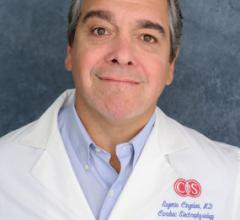
 June 19, 2024
June 19, 2024 
